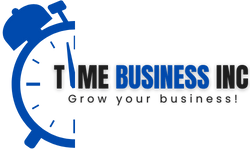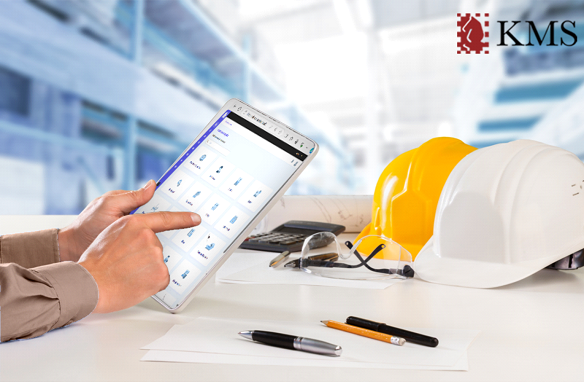Introduction
KMS Industry Clinic System is designed to enhance occupational health and safety practices, particularly in high-risk industries such as construction, mining, oil and gas, plantations, and manufacturing. By integrating automated health surveillance, risk management, and regulatory compliance, KMS provides a comprehensive solution to protect workers from occupational hazards, ensuring businesses meet local and international safety standards.
Occupational health refers to the prevention and management of work-related injuries and illnesses. It focuses on monitoring employee health, exposure to hazards, and implementing controls to mitigate risks. KMS Industry Clinic System assists industries in improving occupational health by offering tools for health surveillance, incident management, risk assessment, and employee management, making it valuable not only for occupational health but also for human resource (HR) management.
Key Features of the KMS Industry Clinic System for Occupational Health
⦁ Employee Health Surveillance
Health surveillance is a core feature of the KMS Industry Clinic System, ensuring that industries can monitor employee health over time. This is especially critical in high-risk sectors such as construction, mining, and oil and gas, where workers are exposed to various hazards like chemicals, dust, and physical risks.
The system supports automated health monitoring, allowing companies to conduct periodic health checks, track medical records, and detect early signs of work-related illnesses. By utilizing health data from the KMS Industry Clinic System, businesses can take preventive actions before serious health issues arise.
All the patients’ records, including the diagnostic support results, are gathered into one comprehensive data. This helps the practitioners monitor the patients’ history and progress and make informed clinical decisions.
⦁ Compliance and Risk Management
Compliance with local occupational health and safety regulations is a legal requirement in Indonesia, governed by laws like the Work Safety Act (Law No. 1 of 1970) and the National OSH Profile (2022). The KMS Industry Clinic System ensures that companies adhere to these regulations by providing tools for risk exposure monitoring, maintaining medical records, and generating compliance reports.
For example, in industries such as mining and oil and gas, where exposure to hazardous chemicals and physical risks is high, the system can determine the exposure level, examination results, and recommendations during the Medical check-up (MCU).
⦁ Taking Into Account Risk Exposure Profiles
With the KMS Industry Clinic System, users can define the MCU package that an employee needs based on their occupational risk exposure profiles, by providing information on their roles and the hazards they face. In factories or construction sites, this feature allows employers to identify areas with higher risks (e.g., exposure to toxic substances or machinery-related injuries), ensuring that appropriate surveillance and preventive measures are in place.
By handling these processes, KMS helps companies avoid non-compliance fines and ensures the health and safety of their workforce.
⦁ Supporting Incident Management Processes
While the KMS Industry Clinic System does not include an incident management reporting system, it significantly supports the incident management function typically managed by the safety department. By providing comprehensive employee health data and health surveillance reports, the system equips safety professionals with critical information needed to manage incidents effectively.
⦁ Health Surveillance Automation
Automating health surveillance tasks ensures timely monitoring of worker health in industries where hazards are frequent. The KMS Industry Clinic System assist the scheduling of medical examinations, tracks employee health data, and alerts management when further medical assessments are needed. This reduces administrative burdens and improves the efficiency of health management in industrial settings like mining or plantations.
⦁ Analytics and Dashboards for Better Decision-Making
The KMS Industry Clinic System provides powerful analytics and dashboards to visualize health and safety data. Industries can monitor trends, track key performance indicators (KPIs), and assess the effectiveness of their occupational health programs in real-time. By analyzing data, companies can make informed decisions to improve workplace safety and prevent future incidents.
In Indonesia, this feature is invaluable for industries that need to meet the stringent reporting requirements set by the Indonesian OSH regulations, such as providing reports on diseases and sick leave.
How KMS Industry Clinic System Supports the HR Department
The KMS Industry Clinic System not only aids in occupational health management but also supports the HR department by efficiently managing employee health data. Every employee is registered in the system as a patient, and the system captures both their employment details and health records. When applicable, it also includes information about their dependents.
This integration of HR and occupational health functions simplifies management processes and improves overall organizational efficiency. Here’s how KMS assists the HR department:
⦁ Centralized Employee Data: By registering all employees in the system with their personal, employment, and health information, HR departments can easily access comprehensive records in one platform. This helps manage employee healthcare needs, track sick leaves, and ensure compliance with company policies.
⦁ Dependent Management: The system also supports the management of employee dependents, which is especially useful in industries where employers provide ⦁ healthcare services to both employees and their families, such as plantations and large industrial sites.
⦁ Improved Coordination: The centralized data allows for better coordination between the HR, health, and safety departments, streamlining processes like health check-ups, and medical leave approvals, and ensuring compliance with health and safety protocols.
⦁ Employee Well-Being: With the system managing both health and employment data, HR can proactively monitor employee well-being, identify trends in health issues, and take necessary steps to address them, leading to a healthier, more productive workforce.
How KMS Industry Clinic System Supports Indonesian Occupational Health Regulations
In Indonesia, occupational health is regulated under the Work Safety Act and related laws, which mandate regular health surveillance and workplace safety measures. The KMS Industry Clinic System aligns with these regulations, ensuring businesses in industries such as manufacturing, construction, and oil and gas meet local safety standards.
Key Indonesian regulations supported by KMS include:
⦁ Work Safety Act (Law No. 1 of 1970): Mandates health and safety protections for workers.
⦁ Government Regulation No. 50 of 2012 (SMK3): Requires risk assessments and health surveillance in industries with significant hazards, such as mining.
Permenaker No. 5 of 2018: Establishes guidelines for health and safety management systems, including mandatory health check-ups and exposure monitoring.
By using the KMS Industry Clinic System, companies in Indonesia can ensure they meet these requirements, maintain accurate records, and avoid penalties for non-compliance.
Benefits of KMS Industry Clinic System for Occupational Health
⦁ Improved Health Outcomes: By automating health surveillance and monitoring, KMS ensures that employee health risks are detected early, preventing severe health issues.
⦁ Enhanced Compliance: The system ensures that businesses in Indonesia comply with local occupational health regulations and global safety standards.
⦁ Operational Efficiency: Automating health management processes reduces administrative overhead, allowing industries to focus on improving worker safety.
⦁ Support for HR Management: KMS helps HR departments manage employee and dependent health data, improving coordination and compliance with healthcare policies.
⦁ Cost Reduction: By preventing workplace accidents and managing risks proactively, businesses can avoid costly fines and downtime due to health-related incidents.
Conclusion
The KMS Industry Clinic System is a comprehensive solution for improving occupational health and safety across industries in Indonesia. Its automated health surveillance provides support for HR departments to ensure that companies in high-occupational risk sectors like mining, oil and gas, plantations, and manufacturing can protect their workers and meet local regulatory requirements. By implementing KMS, businesses not only safeguard employee health but also enhance productivity and operational efficiency.
To get more information about KMS Industry Clinic systems, visit our website at www.ksatria.io or send an email to sales@ksatria.com


